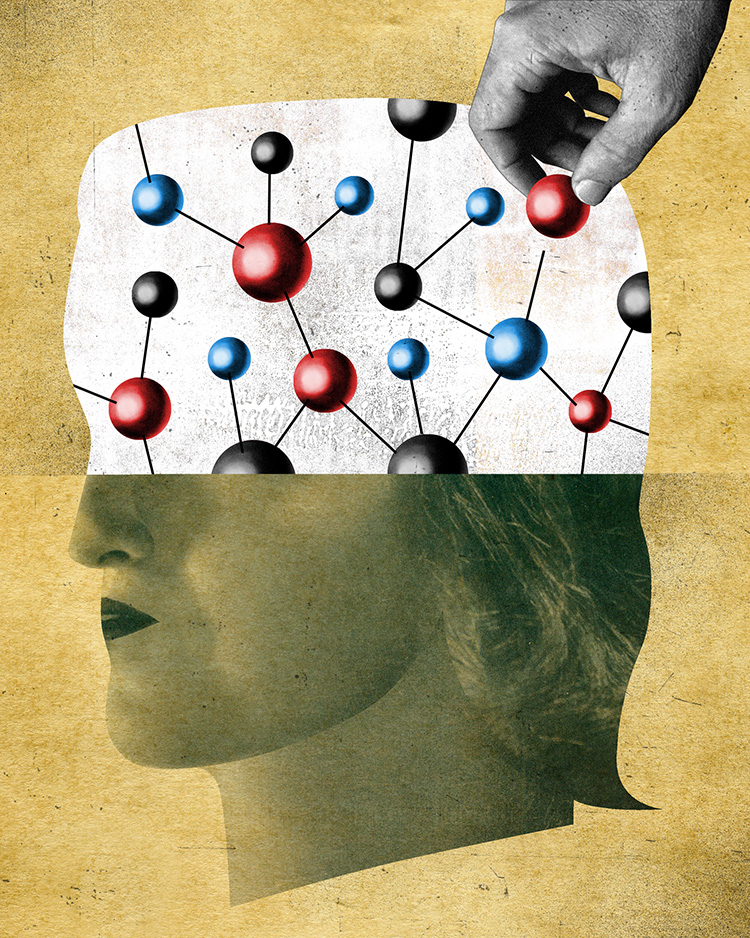Lisa Ouellette Exploring Intellectual Property

When the pandemic upended life as usual at the beginning of 2020, it quickly became clear that the world would need a vaccine to fight COVID-19—and quickly. As development of the vaccine has accelerated, possibly breaking all records, attention has turned to access. Using her expertise as a scientist and a legal scholar, Lisa Larrimore Ouellette, professor of law and Justin M. Roach, Jr. Faculty Scholar, has argued that free global access to a safe and effective vaccine can occur—and be financially rewarding to private-sector vaccine developers.
Ouellette, along with frequent collaborator Daniel Hemel of the University of Chicago and co-author of “Valuing the Vaccine,” explains that government subsidies like Medicare or direct government purchases from developers can offer innovation incentives while also enabling vaccines to be distributed without out-of-pocket costs for patients. Substantial rewards for vaccine developers are important not just for bringing the COVID-19 pandemic to a faster close but also to better prepare for the next one.
Ouellette’s background in physics inspires her to apply the scientific method to her legal scholarship in many areas beyond COVID-19, so much so that she has even put her own previous theories to the test—with surprising results.
“Improving Scientific Judgments in Law and Government: A Field Experiment of Patent Peer Review,” co-written with SLS colleague Dan Ho, William Benjamin Scott and Luna M. Scott Professor of Law, and published earlier this year in the Journal of Empirical Legal Studies, chronicles a three-year field experiment testing a policy proposal from Ouellette’s earlier work.
“I’d argued for peer review for patents to get more information to examiners and improve the patent examination process,” explains Ouellette, an intellectual property scholar who joined the Stanford Law School faculty in 2014 and four years later received the John Bingham Hurlbut Award for Excellence in Teaching. In Ouellette and Ho’s study, more than 300 prominent scientific experts agreed to provide input on U.S. patent applications. “We found that the improvements were small in magnitude and came at a huge resource cost.” Specifically, Ouellette and Ho learned that the intervention caused examiners to increase search efforts and citations to scientific literature and grant applications at lower rates. The study highlighted the challenges of bringing scientific expertise into law and government. “I had to re-evaluate and be willing to change my mind,” explains Ouellette.
“Professor Ouellette is an academic powerhouse,” says Ho who is also the director of the Regulation, Evaluation, and Governance Lab, a senior fellow at the Stanford Institute for Economic and Policy Research, and associate director of the Stanford Institute for Human-Centered Artificial Intelligence. “What makes her an amazing and sought-after collaborator are her dedication, intellectual rigor, patience, and enthusiasm for academic inquiry.”
After earning a PhD in physics with a focus on experimental nanobiotechnology from Cornell University in 2008,
Ouellette grew interested in intellectual property law and public funding for science while at Yale Law School and during a postdoc fellowship at Yale’s Information Society Project, which she completed between two federal judicial clerkships.
Another favorite project for Ouellette was an empirical paper published in the International Review of Law and Economics, which showed that one of the most cited earlier works on university patenting was actually based on coding errors. “How Do Patent Incentives Affect University Researchers?” proved that although a previous study reported that higher inventor royalties led to more university licensing income, there was actually no compelling empirical evidence that increasing university inventors’ royalty share significantly affected any expected outcomes. Ouellette argued that it might actually be preferable for a larger share of royalties to be retained by universities, which are then required by law to reinvest that money back into science education and research.
In addition to arguing for free access to a COVID-19 vaccine, Ouellette has examined the intersection of innovation institutions and the opioid crisis. A forthcoming paper in the Journal of Law and the Biosciences, co-written with the University of Chicago’s Hemel, highlights the potentially destructive role IP protection plays in addictive and habit-forming products and exposes deep flaws in the structure of federal subsidies for and regulation of prescription drugs. She also writes frequently about patents, IP theory, and innovation at Written Description, the blog she launched in 2011.
Alongside her scholarly work, Ouellette teaches several classes including an introductory intellectual property course, patent law, and varied seminars, including International and Comparative Patent Law and Law and Economics of Biomedical Innovation. She ascribes to an active learning model, with classes that are punctuated with mock oral arguments, role-playing activities, interactive multiple-choice questions, and pair-and-share activities that sometimes assign students to a legal role. Her students are “fantastic,” Ouellette says, adding that Stanford attracts “the best students who are interested in tech law issues. Hearing their questions while I’m teaching helps me understand issues better.” SL
